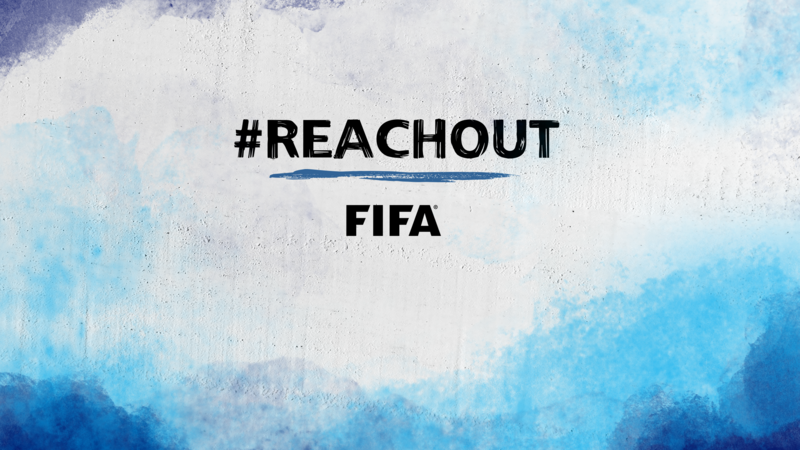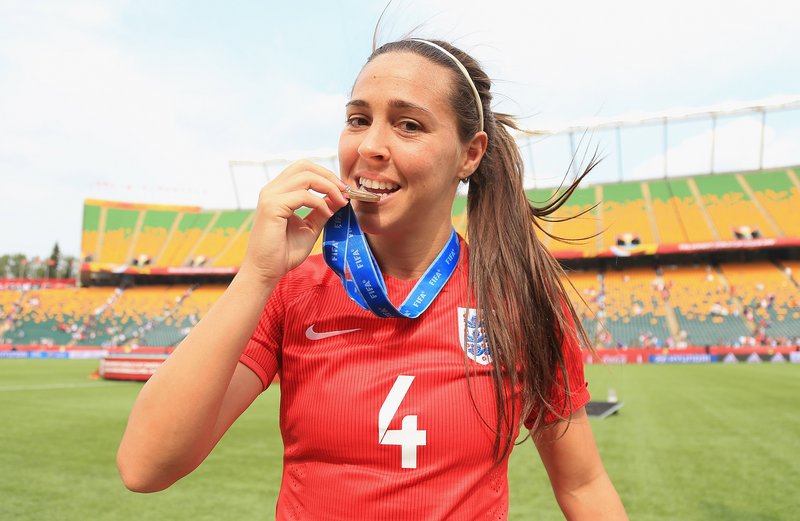#ReachOut: Luis Garcia on the importance of mental wellbeing
The former Atletico, Liverpool, Barcelona and Spain star encourages players to speak out when they have a problem
His own interactions with a sports psychologist helped him as a player and person
"It's about trying to talk and getting relief from some of the [negative] thoughts you might be having," he says
In a playing career that spanned almost 20 years, Luis Garcia experienced his fair share of success. Six seasons in particular – a spell from 2002 to 2008, in which he played for Atletico Madrid, Liverpool and Barcelona – were particularly fruitful, earning him a place in the Spanish national team at the 2006 FIFA World Cup™.
During that period, Garcia shared a dressing room with many players and coaches and received both good and bad advice. One suggestion, though, from Liverpool's then assistant coach Pako Ayestaran during the 2005-06 season made a lasting impact on him. The advice was that he should see a sports psychologist, a decision that would markedly change him as a player.
"Little by little I realised the importance of mental wellbeing and of always trying to think good and positive thoughts," he told FIFA.com in the context of its #ReachOut campaign.
With this campaign, which began in early August, FIFA wants to raise awareness of the symptoms of mental health conditions, encourage people to seek help when they need it, and take actions every day for better mental health.
With the support of current and former players such as Garcia, FIFA is underlining the urgent and increasingly important need for more awareness around mental health. For the former Spain international, his interaction with a sports psychologist completely changed how he dealt with the day-to-day challenges of a top footballer.
"It's about trying to talk and getting relief from some of the [negative] thoughts you might be having or things that happened to you that day. It’s also about sharing them with someone who can give you the tools to deal with these kinds of situations when they next arise."
The conversations were quite helpful to Garcia in dealing with all the ups and downs a player can experience over a season, as he explained with an example from his Liverpool playing days.
"I used to suffer a lot during games. My coach at the time, Rafa Benitez, was very vocal, [so I heard him a lot] when I was playing on the wing. And as I’ve said many times before, Jamie Carragher was always on my case telling me not to lose the ball... Even if you don't want them to, things like that end up affecting you. By the end of the game, you can feel frustrated and uncomfortable, then you go home brooding about all the things you didn’t do well."
Garcia’s sports psychologist changed the way he dealt with moments like these. "He helped to compartmentalise and put aside those kinds of situations and thoughts. I learned to let go of them and focus on the things I needed to, which was the next play."
For all that, recommending a sports psychologist to a team-mate was never easy. "In my time, it wasn’t very common to go and talk to them," the 43-year-old said, before adding: "If a team-mate appears sad, stops making jokes or maybe stops going to team meals, then you know something isn’t right. However, situations like that are not easy to deal with. That affected person could be very reluctant to open up or talk about it," he explained, underlining the importance of recognizing mental health problems.
Indeed, recognising the symptoms of mental health problems is as important as someone accepting that they have a problem. Having had first-hand experience, Garcia wanted to share it and help others. "I’d been in that situation where you don’t feel comfortable about something and want to talk to someone about it. When I had the opportunity to talk to the sports psychologist and it went very well, I began sharing my experience. So I've tried to help team-mates, reaching out to them so they go and talk to someone who can help them with whatever they’re worried about."
By way of conclusion, Luis Garcia wants to highlight an issue that worries him and about which he is often asked – that of young people. "You have to help them when they embark on their career. Some no longer have their feet on the ground and think they’ve made it. We need to relieve some of the pressure young people are experiencing, that which comes from wanting to be or having to be a [professional] player. There’s the pressure they put on themselves as well as that from family and friends. That doesn't help their development or their ability to enjoy their football, which is the most important thing."
Befrienders Worldwide Befrienders Worldwide provides help and support all over the world to those experiencing emotional distress or the urge to commit suicide.
Visit https://www.befrienders.org/ and https://www.befrienders.org/other-helpline-organisations to find support in your country. Please note that while every effort has been made to ensure that information provided is accurate, FIFA is not responsible for the content of external websites. If you're in imminent danger, call your local emergency services.

